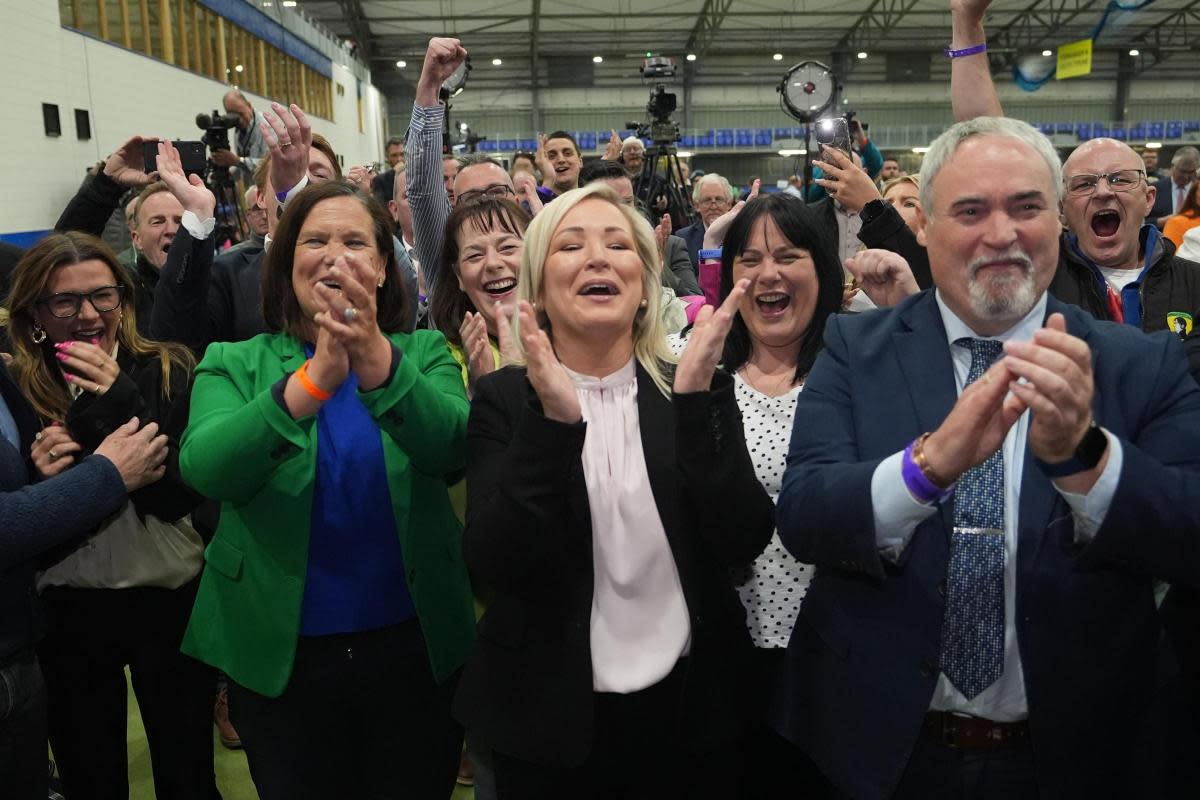Sinn Fein become biggest party in Northern Ireland at Westminster

SINN Fein have become the largest party in Northern Ireland at Westminster for the first time following a bruising night for the Democratic Unionist Party (DUP).
The party, which does not take its seats in the House of Commons, now has seven seats. This is the same number as it had in 2019.
Sinn Fein leader, Mary Lou McDonald, said it was time to "prepare for a new future together on this island".
The DUP had eight seats in 2019 and returns in 2024 with just five.
"Sinn Fein has made history yet again by being returned as the largest party in the north, in seats, vote percentage and votes,” said McDonald.
READ MORE: General Election result: Who are the big political returners?
“The message of the people of the north of Ireland to the British government tonight is that change is happening, it is time to plan, it is time to prepare for a new future together on this island. The people have spoken.
"I want to thank every person who came out and put their X beside a Sinn Fein candidate to get behind our positive vision for a better future in a new Ireland.”
Sinn Fein Stormont minister Conor Murphy said Unionists cannot bury their head in the sand about electoral trends in support of Irish unification.
The Irish republican party also holds the most seats at Stormont and local council level.
“I think that the result last night confirms the degree of change that has been happening over our society for a number of years now,” Murphy told BBC Radio Ulster.
“What we want to see is an honest and a structured dialogue in relation to what the future holds. And that is one in which everyone has a say, that everyone’s rights and entitlements are protected.
(Image: PA)
“But we can’t not recognise the change that’s happening. And that’s what we’ve been about and that’s what many in the nationalist community and broader than the nationalist community in terms of dialogue have been about over the last number of years."
The DUP suffered a seismic shock when Ian Paisley (above) lost his seat in North Antrim.
The Paisley family has held the North Antrim seat for more than 50 years, but that legacy has come to an end with the victory of TUV leader Jim Allister in the Unionist heartland.
READ MORE: Highlands seat set for recount TOMORROW amid tight contest
The Alliance Party’s Sorcha Eastwood also had a historic result as she triumphed in the DUP stronghold of Lagan Valley – the seat formerly held by party leader Sir Jeffrey Donaldson.
Former nursing union boss Pat Cullen held Fermanagh and South Tyrone for Sinn Fein.
Sinn Fein vice president Michelle O’Neill told the BBC: “Our politics is all about the future, it is about what we can do here working together.
“Particularly in this Westminster election this is an opportunity for people to have a say in how they want decisions taken about their lives.
“The fact that we are now the largest party in local government, the largest party in the Assembly and the largest party at Westminster speaks to the fact that I think it is time for change, time for us to be able to take control.
“I look forward to the journey in terms of having the constitutional change conversation – what could that look like?”
While it was a torrid night for the DUP, the Ulster Unionist Party is returning to Westminster after former Stormont health minister Robin Swann took a seat from the DUP in South Antrim in a comprehensive victory.
The SDLP has retained the two seats held in the last parliament by its leader, Colum Eastwood, in Foyle, and deputy leader, Claire Hanna, in South Belfast and Mid Down.

 Yahoo News
Yahoo News 

